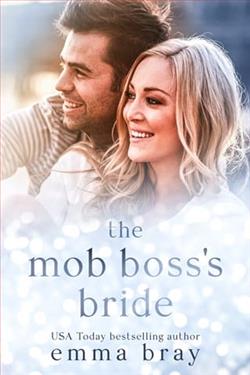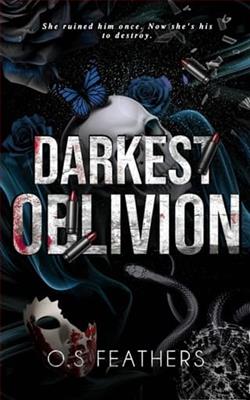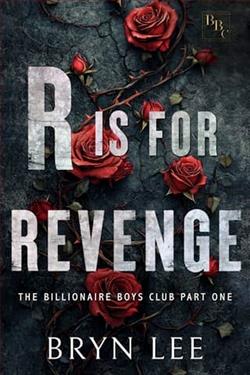Page 4 of Bought: One Husband
There was the more than healthy sum she’d hoarded with the intention of settling her mother and Fran in a country cottage. If Studley was hers, she wouldn’t need it.
And she knew just the man who might accept her proposition.
He’d be more than presentable once he was tidied up—with the type of looks that would send most women dreamy-eyed. So people wouldn’t be totally amazed if she married him, and that solicitor wouldn’t suspect there was something fishy going on.
She’d have to take a chance on his trustworthiness, but she already knew that he had a kind and caring disposition. And he was poverty-struck, or as good as. Surely he would jump at the opportunity of earning himself a nice little nest-egg.
True, she’d been introduced to him barely a week ago, and, true again, he’d made his interest in her more than plain. But she’d fended him off, coolly and politely, with the ease of long practice. So she’d have to make it perfectly clear that there would be no hanky-panky.
She could handle that. Of course she could. No worries there.
Crossing the room, she picked up the phone and cancelled dinner with her agent, then walked determinedly to the bedroom and began to pack.
Jethro Cole, the rookie window-cleaner, was her only hope.
CHAPTER TWO
‘I CAN only suppose,’ said Nanny Briggs as she carried the coffee tray through to the sitting room, ‘that since Harry swallowed that pride of his and accepted you as a partner, your staying on here has something to do with that very pretty young woman who stopped by last week to thank you for picking her mother up off the pavement.’
Jethro folded the FT with an impatient crackle. He didn’t know why the hell he was still here, making a damn fool of himself. And he most certainly didn’t want to discuss it.
He glared moodily back over the last eight days: to his first day here, on what had been supposedly a flying visit, to find Harry—judging by the sound of his moans and groans—lying on his deathbed, in a fret because he was letting his customers down and his van was in to get the clutch fixed, so how could he get it, the state he was in, and how could he climb ladders when he could barely stand?
Nanny Briggs had never learned to drive, so Jethro had collected the pile of rust from a garage a few streets away. Driving back, a slender, neatly dressed woman had collapsed on the pavement. Alissa’s mother, as he’d discovered later.
When she’d recovered sufficiently to tell him she’d never fainted in her life before he’d driven her home, insisted on making her some tea, and stayed with her until her sister returned from work.
The woman, Laura Brannan—and even then he hadn’t made the connection—had once been very lovely, but her frailty, her pallor, the sadness in her eyes, had worried him. On his way out he’d taken her sister aside. ‘I don’t want to sound alarmist, but I think you should persuade her to get a check-up.’
‘I can try. But she won’t take time off. If she’d trained for a proper career, instead of relying on some useless man, then she wouldn’t have to go out cleaning other people’s houses all day and offices half the night. And she wouldn’t get herself worn ragged.’
Sister Fran was a man-hater, obviously. He’d said goodbye and put the incident out of his mind. But the next day, up a ladder, washing Nanny Briggs’ windows because Harry, though grateful for his offer to hold the fort had refused to let him loose on his customers until he’d seen what kind of a pig’s ear he made of the job, the woman who’d lingered in his mind for twelve months had stopped to thank him for coming to her mother’s aid.
Seeing her again had sent him into a tailspin, made him speechless, but as soon as he’d got his head together he’d made up his mind. This time she wouldn’t get away. This time he wouldn’t be too busy to make the follow-up.
That evening, for some reason he hadn’t worked out at the time, he’d put on old but clean jeans, topped by a faded T-shirt—the sort of rough and ready gear he wore around his country home while knocking in fenceposts or helping the full-time gardener—and walked the short distance to where he now knew she was staying with her mother, carrying a bunch of flowers. For Laura.
And he had earned himself an hour of tea and chat.
Laura’s pleasure in the flowers, her touching gratitude that he had remembered where she lived
, had stung his conscience—particularly when it had become obvious that she thought he was a window-cleaner, struggling to make a living.
During that hour he had learned a couple of things: Alissa—or Allie, as she preferred to be called—would be staying in the area for a few weeks. And she didn’t want him to know how she earned her living because she had killed the conversation stone-dead when Laura had begun to say something about a fashion shoot.
It was as if she didn’t want him to imagine the glamorous side of her life, to look at her with male speculation. But, if she had but known it, he’d found her even more loin-stirringly desirable in the inexpensive cotton skirt and sleeveless top she’d been wearing.
The soft fabric had swayed against her lissom body as she’d walked, hinting at the tender curve of her breasts, the long and elegant line of her thighs. The feminine grace of her had brought a lump to his throat; he didn’t think he’d seen anything as beautiful as the way she moved.
And he hadn’t been able to tear his eyes away from the delicacy of her bone structure in repose: the long, heavily lashed and fascinating deep blue eyes, the sensual curve of her unpainted mouth. Just looking at her had given him problems with certain parts of his anatomy, but he hadn’t been able to tear his eyes away.
He had also earned himself an invitation to supper the following evening. Though he’d seen the quick frown Allie had given her mother, her bored smile when he’d accepted. It hadn’t squashed him. He loved nothing better than a challenge. A challenge of any kind made the adrenalin flow. And he had walked back to 182 vowing complacently that before she knew what had hit her he’d be kissing the boredom from those sultry lips.
‘Do I take it, from your grumpy expression, that you haven’t got any further than taking tea with her mother?’ Nanny Briggs handed him his coffee, black and strong, just the way he liked it. He shook his head at the plate of biscuits she pushed over the low table towards him and wished she’d drop the subject.
He ground his teeth when she didn’t. ‘Most evenings last week you popped out “to see how Mrs Brannan’s getting on” and came back with that grim, determined look on your face. You can’t argue with that!’
He wasn’t. He’d taken up Laura’s invitation to supper with alacrity, sure he’d make progress in his pursuit of Allie. He’d done no such thing. On subsequent evenings when he’d ‘just dropped by’ his hopefully casual-seeming suggestions that Allie might join him in a walk by the river, a stroll downtown to pick up a Chinese takeaway, had been politely but firmly turned down.















